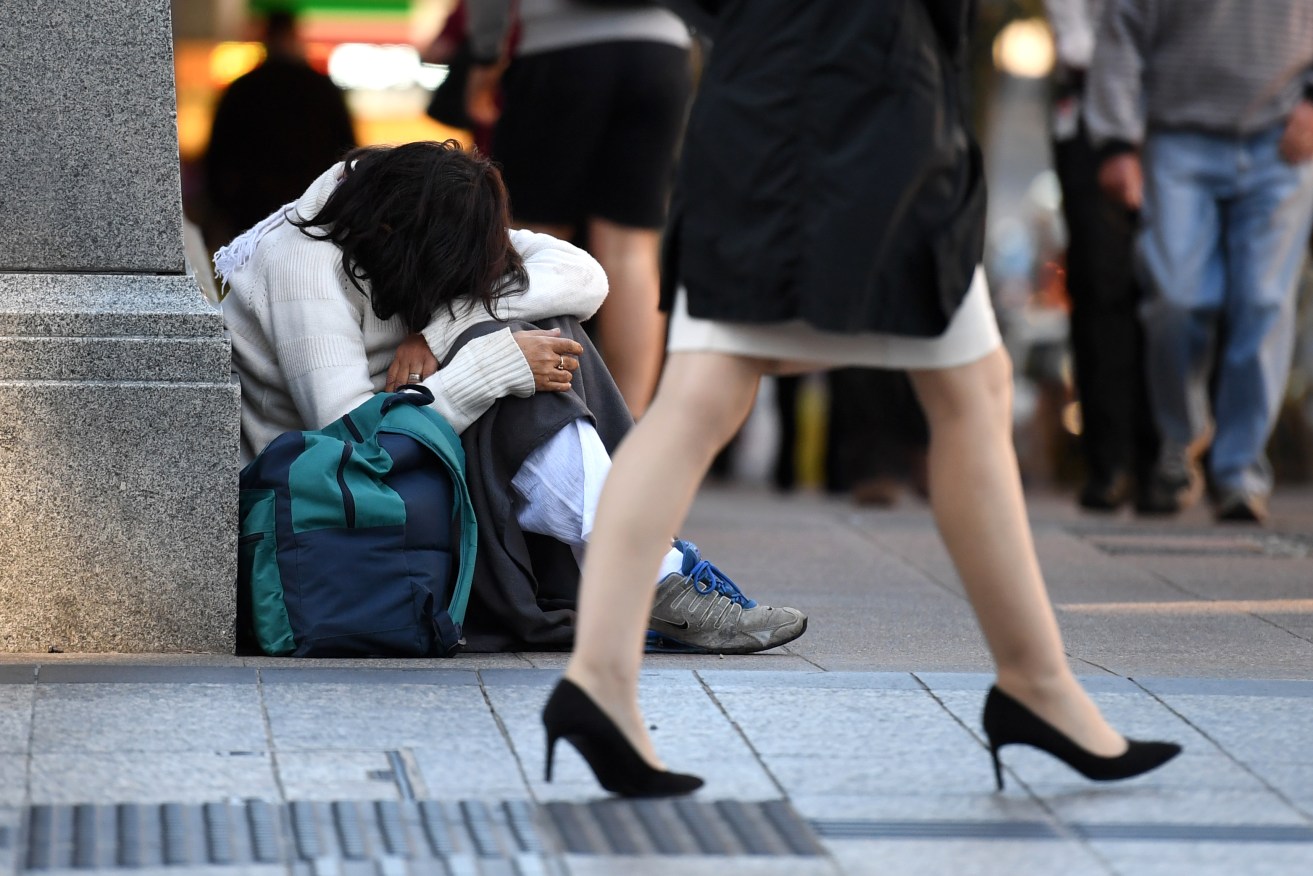Combined effort needed on falling living standards and rising poverty
The latest figures show poverty is on the increase, particularly for older people and women. More needs to be done by government and corporations to help support South Australia’s most disadvantaged, writes lawyer and state MP Andrea Michaels.


Photo: AAP/Dan Peled
Having a strong, fair and inclusive community is one of the factors that defines a successful democracy. However, reading the results of the latest Household Income and Labour Dynamics (HILDA) survey last week, it’s clear things aren’t working out so well in this regard. Living standards have fallen and more people are living below the poverty line or on the streets. It’s time national and state leaders take more responsibility for solving these issues by putting this at the top of the agenda.
The HILDA survey shows 10.4 per cent of people are now struggling with poverty. Research from key charity groups confirms things are getting worse, not better – especially for older Australians and women.
The St Vincent de Paul Society estimates there are around 43,000 new people requiring services each year in Australia. SA charity Catherine House says the number of homeless women, many of them aged over 50, needing housing services and support has also increased rapidly.
Former World Vision Australia CEO and social justice advocate Tim Costello commented on the ABC’s Q&A program last week that in a world based on how much you earn, where you live and what car you drive, those who are poor or disadvantaged have become our invisible citizens. They are easy to forget.
Talk is not enough – we need solutions and funding
It’s time we look for answers not just words, with decent budget allocations and policies. The corporate world needs to extend its support of charities and can partner with government as well to assist in formulating workable solutions. Like they say: it takes a village.
Sadly, while the widening scope of these issues is newer to our shores, other countries are living the reality of entrenched social injustice. Visiting Europe earlier this month, it was hard to ignore the huge number of people begging and living on the streets. In San Francisco, the problem has become so bad it’s estimated around 23 per cent of the population are now living in poverty. Many of these people are working, but still not earning enough to pay their rent. Meanwhile, many executives at successful companies like Google and Amazon drive Porsches.
Cuts in all the wrong places
As a lawyer, MP, business owner, and parent, I’m deeply concerned by these kinds of global and local trends. In our own state, these problems are worsening.
More than 6000 people are homeless in South Australia today, largely due to lack of affordable housing, domestic violence and lack of access to suitable employment. In addition, mental health problems are on the rise with one in five people affected each year. These issues can often become intertwined.
Yet in the face of these statistics, State Government funding has been reduced to many of the agencies that support these services. This is despite that fact that 11 non-government health and community services agencies and peak bodies wrote to all political parties before the last state election begging for protection of their existing budgets.
Some might say the problems are just the result of globalisation and there is nothing we can do about that. I don’t believe that assessment. There are new ideas that can work.
Finland has led the way here with an impressive program that has stunned other European countries. They’ve provided more low-cost housing and supplemented that with specialist in-home tailored support programs to help people get back on their feet. But that took a real commitment from private industry, charities, community volunteers and government.
So could we follow Finland’s example in actively tackling some of our own issues? Why not? Forming effective partnerships and providing adequate levels of funding to charities and NGOs would be a good start.
We face some very important socio-political questions as we struggle to reconcile a world where dollars, savings and KPIs seem to come before looking after one another. If we really want to live in a community where people matter, we have to do something now and work together to find a solution.
Andrea Michaels is the managing director of NDA Law and state Labor MP for Enfield. She is also an ambassador for charity Catherine House.
Want to comment?
Send us an email, making it clear which story you’re commenting on and including your full name (required for publication) and phone number (only for verification purposes). Please put “Reader views” in the subject.
We’ll publish the best comments in a regular “Reader Views” post. Your comments can be brief, or we can accept up to 350 words, or thereabouts.
InDaily has changed the way we receive comments. Go here for an explanation.




